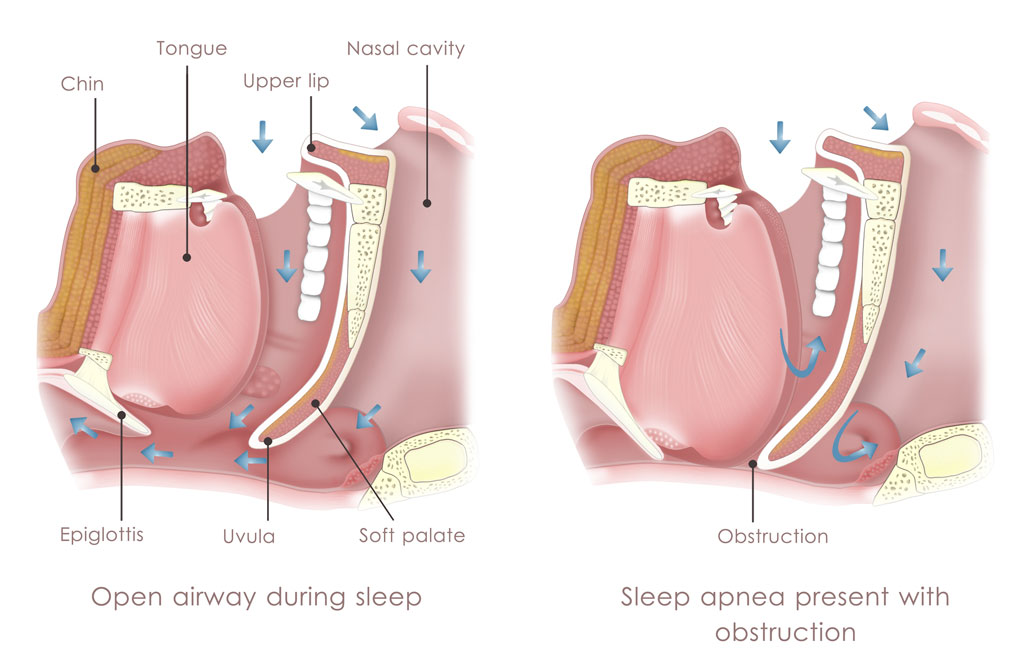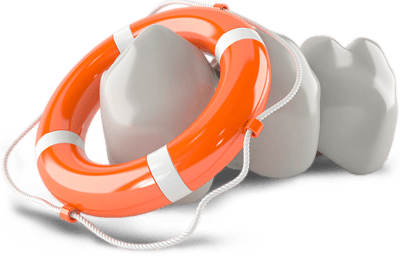Sleep apnea symptoms are quite common among millions of men, women, and children, and unfortunately, it can often goes undiagnosed. Individuals with this condition will experience periods of time where they will stop breathing repeatedly during the night – at times for a minute or even longer! When individuals repeatedly stop breathing, this loss of oxygen will contribute to numerous overall health disorders such as headaches, high blood pressure, and impotency. Additionally, these individuals may suffer from excessive daytime sleepiness, depression, and loss of concentration.
Obstructive Sleep Apnea in the Human Body
To get a better understanding of how sleep apnea symptoms affects your body, take a look at the diagram below.

If you feel you are experiencing several OSA symptoms, it’s important to get a complete examination and accurate diagnosis. We encourage you or your loved ones to get an examination and not put yourself at risk for morbidity. Obstructive Sleep Apnea can be treated with a variety of both non-surgical and surgical methods.
At Pacific Oral & Maxillofacial Surgery, Dr. Salib will take a medical history and utilize cutting edge diagnostic technology with our cone beam CT Scanner to discover any issues that might contribute to the problem. If we suspect a sleep disorder, you will be promptly referred to a sleep clinic, which will monitor your nighttime sleep patterns through a special test called a polysomnography. Dr. Salib will coordinate your treatment with other medical doctors that are the best suited to deliver the comprehensive treatment that you deserve.
There are a variety of surgical and non-surgical treatments available depending on the severity and cause of your OSA. After a thorough analysis, Dr. Salib will recommend the best solution for you unique needs. At Pacific Oral & Maxillofacial Surgery, we are experts in the fabrication and use of FDA – approved oral appliances for the successful treatment of sleep apnea and snoring. Your oral appliance is custom made and will stabilize your lower jaw and tongue while you sleep allowing for more air to pass through, letting you to breathe easily and sleep better!













